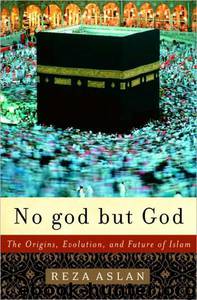No God but God by Reza Aslan

Author:Reza Aslan
Language: eng
Format: mobi
Tags: Politics, History, Philosophy, Religion, Non-fiction
ISBN: 9781588364456
Publisher: Random House
Published: 2005-07-15T00:00:00+00:00
These four rituals—communal prayer, the paying of alms, the fast of Ramadan, and the Hajj pilgrimage—provide meaning to the Muslim faith and unity to the Muslim community. Yet one could argue that the primary function of these four is to express the fifth and most important Pillar (and the only one requiring belief rather than action): the shahadah, or profession of faith, which initiates every convert into the Muslim faith.
“There is no god but God, and Muhammad is God’s Messenger.”
This deceptively simple statement is not only the basis for all articles of faith in Islam, it is in some ways the sum and total of Islamic theology. This is because the shahadah signifies recognition of an exceedingly complex theological doctrine known as tawhid.
The doctrine of tawhid is so central to the development of Islamic theology that “the Science of Kalam” (‘ilm al-kalam) is synonymous with “the Science of Tawhid” (‘ilm al-tawhid). But tawhid, which literally means “making one,” implies more than just monotheism. True, there is only one God, but that is just the beginning. Tawhid means that God is Oneness. God is Unity: wholly indivisible, entirely unique, and utterly indefinable. God resembles nothing in either essence or attributes.
“Nothing is like Him,” the mystic and scholar Abu Hamid al-Ghazali (1058–1111) wrote in his Revival of the Religious Sciences, “and He is not like anything.” God is, as the Quran repeatedly reminds believers, “elevated”; God is “eminent.” When Muslims cry Allahu Akbar! (literally, “God is greater!”), what they mean is not that God is greater than this or that, but that God is simply greater.
Obviously, human beings have no choice but to speak of God in human language, through human symbols and metaphors. Therefore, one can refer to God’s attributes as embodying “Goodness” or “Being,” in the classical philosophical sense, but only with the recognition that these are meaningless terms when applied to God, who is neither substance nor accident. Indeed, tawhid suggests that God is beyond any description, beyond any human knowledge. “Imagination does not reach Him,” stressed the Egyptian theologian al-Tahawi (d. 933), “and understanding does not comprehend Him.” God is, in other words, wholly Other: the Mysterium Tremendum, to borrow Rudolph Otto’s famous phrase.
Because tawhid insists that God is One, a group of Muslim mystics called the Sufis will claim that there can be nothing apart from God. God is, according to the Sufi master Ibn al-Arabi, the only being with real existence: the only reality. For al-Ghazali God is al-Awwal, “the First, before whom there is nothing,” and al-Akhir, “the Last, after whom there is nothing.” Al-Ghazali, it must be understood, is making neither an ontological nor a teleological argument for the existence of God; God is neither Thomas Aquinas’s “First Cause,” nor Aristotle’s “Prime Mover.” God is the only cause; God is movement itself.
If tawhid is the foundation of Islam, then its opposite, shirk, is Islam’s greatest sin, for which some Muslims claim there can be no forgiveness (see the Quran 2:116). In its simplest definition, shirk means associating anything with God.
Download
This site does not store any files on its server. We only index and link to content provided by other sites. Please contact the content providers to delete copyright contents if any and email us, we'll remove relevant links or contents immediately.
| Buddhism | Christianity |
| Ethnic & Tribal | General |
| Hinduism | Islam |
| Judaism | New Age, Mythology & Occult |
| Religion, Politics & State |
Cecilia; Or, Memoirs of an Heiress — Volume 1 by Fanny Burney(31351)
Cecilia; Or, Memoirs of an Heiress — Volume 3 by Fanny Burney(30948)
Cecilia; Or, Memoirs of an Heiress — Volume 2 by Fanny Burney(30907)
The Secret History by Donna Tartt(16657)
Sapiens: A Brief History of Humankind by Yuval Noah Harari(13073)
Leonardo da Vinci by Walter Isaacson(11918)
The Radium Girls by Kate Moore(10915)
Sapiens by Yuval Noah Harari(4551)
The Wind in My Hair by Masih Alinejad(4427)
How Democracies Die by Steven Levitsky & Daniel Ziblatt(4413)
Homo Deus: A Brief History of Tomorrow by Yuval Noah Harari(4290)
Endurance: Shackleton's Incredible Voyage by Alfred Lansing(3854)
The Silk Roads by Peter Frankopan(3779)
Man's Search for Meaning by Viktor Frankl(3648)
Millionaire: The Philanderer, Gambler, and Duelist Who Invented Modern Finance by Janet Gleeson(3575)
The Rape of Nanking by Iris Chang(3526)
Hitler in Los Angeles by Steven J. Ross(3447)
The Motorcycle Diaries by Ernesto Che Guevara(3344)
Joan of Arc by Mary Gordon(3270)
